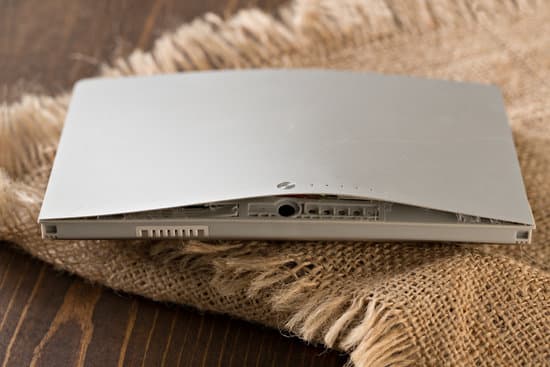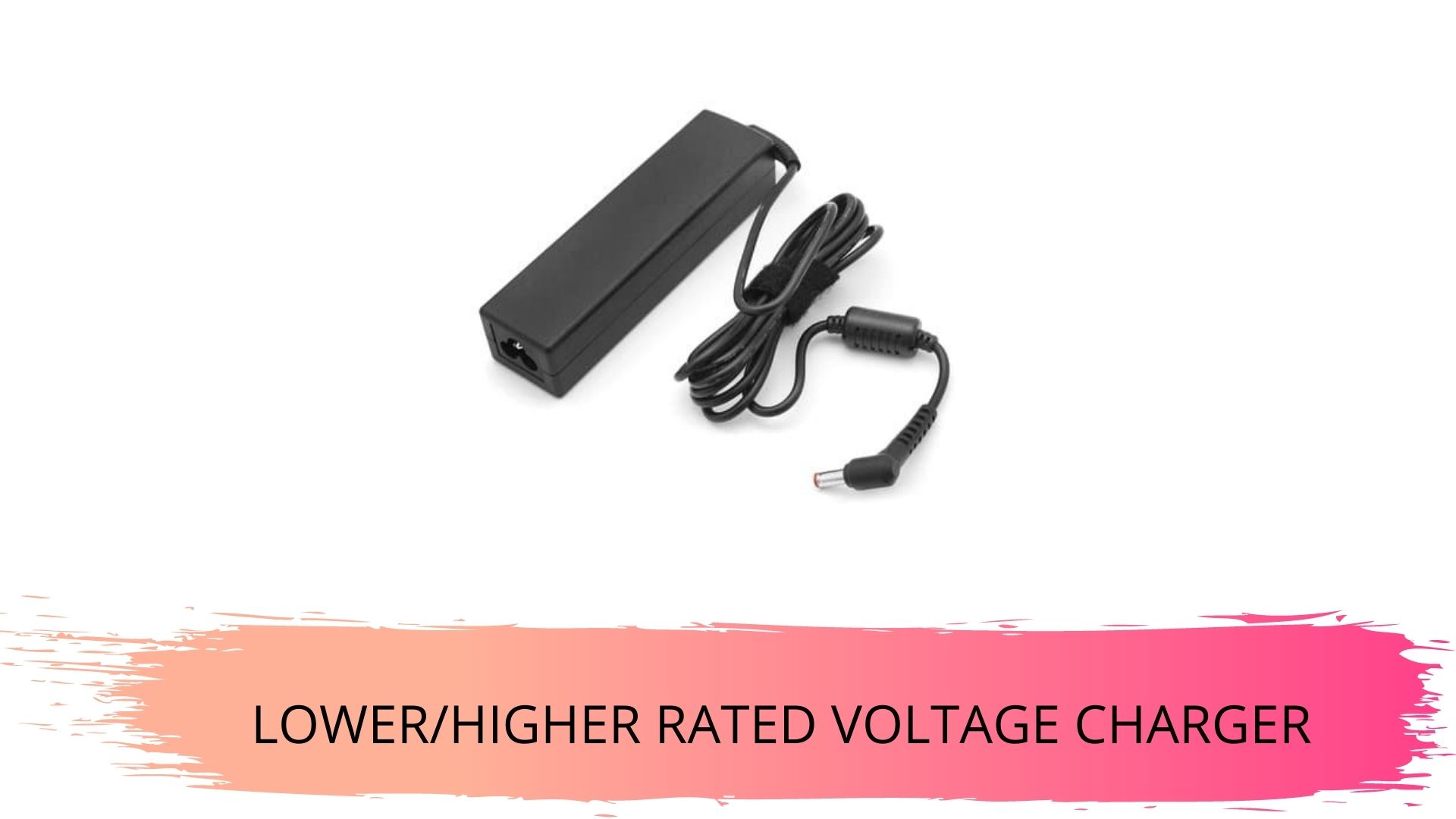Are you looking for a charger for your laptop? If so, it is essential to look at the voltage rating of the charger. Once you do so, after that, only you can make the correct buying decision.
The problem is when there is a voltage mismatch, you might be thinking, can you use a Lower voltage charger, or can you use a charger with a higher voltage? I will today answer both of these questions. Once you go through the article below, it will become easier for you to choose the right charger for your laptop.
Can I Use Lower Voltage Charger For My Laptop?
You cannot use a lower voltage charger for your laptop. The lower voltage charger can charge the battery excruciatingly slow. It might not support the working of the laptop either.
I will highlight all these reasons and more below.
What happens if you use a higher or lower rated voltage charger?
I will today highlight what happens when you charge your laptop with a higher or lower voltage charger. Let us 1st start with the problems which a lower voltage charger can lead to.
Using the lower voltage charger:
1. Slow battery charging:
One of the main reasons you should not use a lower voltage charger is slow battery charging. If, for example, the usual time to charge your laptop battery is 1 hour, the lower voltage charger can take up to 2 1/2 to 3 hours. Due to the same, you will not be able to take advantage of the laptop’s battery capacity.
2. Lack of charging:
When the voltage rating is very low, it can cause a lack of charging as well. Consequently, the battery will not charge at all. The problem with the same is that your laptop will turn off if there is any power fluctuation. You will not even get the time to save your work. In that case, it will be counter-productive.
3. Lack of power support:
When the voltage is too low, you might not be able to work while the laptop is plugged in as well. That is because the voltage will not support the working of the laptop. In that case, the components and the motherboard will be underpowered. In such a case, the laptop will not start at all. In a nutshell, many times, it may so happen that the laptop does not turn on due to the lower voltage charger.
Now you know what can happen if you charge your laptop with a lower voltage charger. Let us look at the opposite situation as well.
Can I charge with a higher voltage?
No, you cannot charge a laptop with a higher voltage charger. The number of problems that can occur in this case is more.
Using a higher voltage charger:
If you plan to use a higher voltage charger, the problems that can occur are even worse. I will highlight these problems below.
1. Battery damage:

The main problem which can occur is battery damage. Due to the excessive voltage, the cells of the battery might get damaged. When that happens, even if you use the right charger afterward, the cells will not charge.
With damaged battery cells, the capacity of the battery will go on reducing. In that case, the decaying current will be on the higher side as well.
In a few weeks, you will have no other option but to replace the battery.
What might start as partial battery damage might damage the battery entirely. Due to this reason, you should avoid using a higher voltage charger as far as possible.
2. Circuit damage:
In many cases, the higher voltage can cause the battery to provide more power to the laptop’s motherboard and other circuitry.
While at that time, the circuit might function properly. However, a consistent supply of excessive power can damage the circuit.
Since components like the motherboard and processor draw a lot of power, such excessive power can lead to damage. Both of these components are extremely expensive.
When the damage occurs, you will have no other option but to replace the motherboard and the processor.
The small mistake of using a laptop charger with a higher voltage can cost you dearly. To avoid all these problems, it is a good idea to stick with the voltage rating which your laptop is rated for.
3. Lack of dependability:
When you’re using a charger that is rated differently as compared to your laptop, you cannot rely on it. Usually, in a laptop that is powered through a charger, you can be sure that if the power goes off, the battery will power the laptop.
The same can happen whenever there is a fluctuation of power as well.
The problem is that when you’re using a higher voltage charger, you cannot be 100% sure whether the laptop is running on direct power or the battery. In that case, any fluctuation of power can shut down the laptop. When that happens, you might lose the data as well as the work. In that case, you cannot rely on your machine entirely.
4. Error message:
Windows, as well as other operating systems, are getting smarter and smarter.
If you use a charger that is rated differently than the one required by your machine, an error message might pop up. The message will help you diagnose the problem. It will also alert you whether the laptop is running on direct power or whether the battery is getting charged or not.
When the battery is not getting charged, you have to rely on direct power. In that case, any power fluctuation can damage the circuit and lead to a laptop shutdown.
Thus, you will get annoying messages when you’re using a laptop charger with a higher voltage rating.
5. Laptop runs on direct power:
As I highlighted above, in case you’re using a higher voltage charger, the laptop might run on direct power as well.
What this means is that the battery is not powering any component of your laptop. The charger directly is.
You might be thinking, what’s the problem with that?
The problem is that any fluctuation will impact the laptop components directly.
If the power shuts down, your machine will as well.
However, if the voltage increases, it can lead to severe damage to the components. That is because already the components are receiving a higher voltage due to the charger.
On top of that, if the power fluctuates and the voltage increases further, it can fry the components. In that case, you will have no other option but to get it repaired.
Laptop repair can be pretty expensive. It is a good idea to avoid all this trouble and stick to the charger rated adequately.
6. Excessive heat:
The charger having a higher voltage rating will also supply more current. A higher current amplitude ensures that more electrons will pass through the cable. When that happens, the heat generated is also on the higher side.
With consistent usage, the battery will overheat and the charger as well. In that case, both of them can get damaged.
Moreover, excessive heat near the laptop is not an ideal condition either. In fact, it can impact the laptop negatively as well.
To avoid all these problems, you have to use the charger with the correct voltage rating. Only, in that case, you can prevent excessive heat.
7. Plug size mismatch:
The voltage or the power rating of the charger also determines the size of the plug.
I am referring to the plug which goes into the laptop.
If that particular plug is bigger than the slot, you will not be able to connect the charger with the laptop. Plug mismatch can refrain you from powering the laptop.
You have to look at the plug size and after that choose the charger.
To avoid these problems, you have to ensure that you choose the laptop charger with the right specifications. A laptop charger with a higher voltage rating can cause a lot of problems.
The next question which many consumers might have, is how much higher voltage rating is feasible for the laptop?
I will answer that question below.
How much higher voltage is desirable while charging a battery?
If you need to use a charger with a higher voltage rating, a charger with a 20% higher voltage rating is permissible. However, you can only use that for a short period.
If you use it for an extended period, the above problems can occur.
In most cases, however, it is a good idea to avoid that charger. If you have no other alternative and want to power your laptop, you can go ahead and use it.
By now, you already know that using a charger with a lower voltage rating or higher voltage rating can be problematic for your laptop.
That brings us to the question, how to choose the right charger for your laptop?
I will answer that question below.
How to choose the right charger?

When you’re looking to buy a charger for your laptop, it is essential to compare the various chargers on a few parameters. Once you do so, picking the right charger becomes easy for you.
Right Voltage rating:
The most critical parameter which you have to consider is the voltage rating of the laptop charger. The voltage rating should not be on the lower side, and neither should be on the higher side.
You have to look at the specifications of your current laptop charger. If you do not have one right now, you can check the specifications online as well.
You have to buy a laptop charger which matches those specifications ideally. Once you do that, it will become easier for you to pick the right laptop charger.
When you match the specifications exactly, you will not have to worry about any damage to your laptop either.
Plug compatibility:
The size of the plug should be such that it goes into the slot of your laptop easily. In that case, only, you can connect your laptop to the power supply.
If there is a plug size mismatch, you will have no other option but to opt for another laptop charger. In that case, you will waste both time and money.
The plug compatibility is another important aspect that you have to consider while choosing the right laptop charger.
Cord length:
Not always, you will have a power socket nearby. Many times, the plug might be away from the laptop.
In that case, if the cord of the laptop charger is short, you will have to use it extension.
Instead of going through so much trouble, it is a better idea to look at the charger’s cord length in advance. Once you look at the cord length in advance, it will become easier for you to choose a laptop charger you can easily plug into the socket.
The larger the cord length of the charger, the better it is. While this might seem like a small parameter to compare the laptop chargers, it adds to the convenience. That is why it is essential to look at the cord length and after that make that buying decision.
Safety features:
Did you know that many laptop chargers consist of safety features as well?
It is true!
While comparing the different laptop chargers, you have to look at the safety features they offer. Once you do so, choosing the right one becomes easy. I will highlight a few safety features which you should look out for.
Overvoltage protection:
Many times, due to power fluctuation, the voltage can vary as well. When you’re buying a laptop charger, it is a good idea to choose one which has over-voltage protection. In that case, the power supply or laptop components will not be damaged.
Overcurrent protection:
Laptop chargers with overcurrent protection are common. The safety feature is pretty self-explanatory. In case the current surges beyond a certain level, it will protect the laptop’s battery from the same.
Thermal protection:
Many laptop chargers consist of a heat sink. The job of the heatsink is to dissipate the heat and reduce the temperature of the charger.
In many cases, if the temperature increases beyond a certain threshold, the charger will shut down as well. In that case, the extra heat will not be transferred to your laptop. This feature can protect your laptop in more ways than one.
These are the 3 common safety features that a laptop charger can offer you.
Rather than choosing an ordinary laptop charger, you have to choose one which consists of these features. Once you do so, you can easily select the safest laptop chargers.
The next time around, you’re buying a laptop charger to make sure that you compare it on these 4 parameters. Once you do so, choosing the right one becomes easy.
So, you cannot use a lower voltage laptop charger as well as a higher one. You have to ensure that you match the laptop charger’s voltage rating and use it after that. Only, in that case, you can ensure that the laptop’s components will not get damaged.
Related post:

